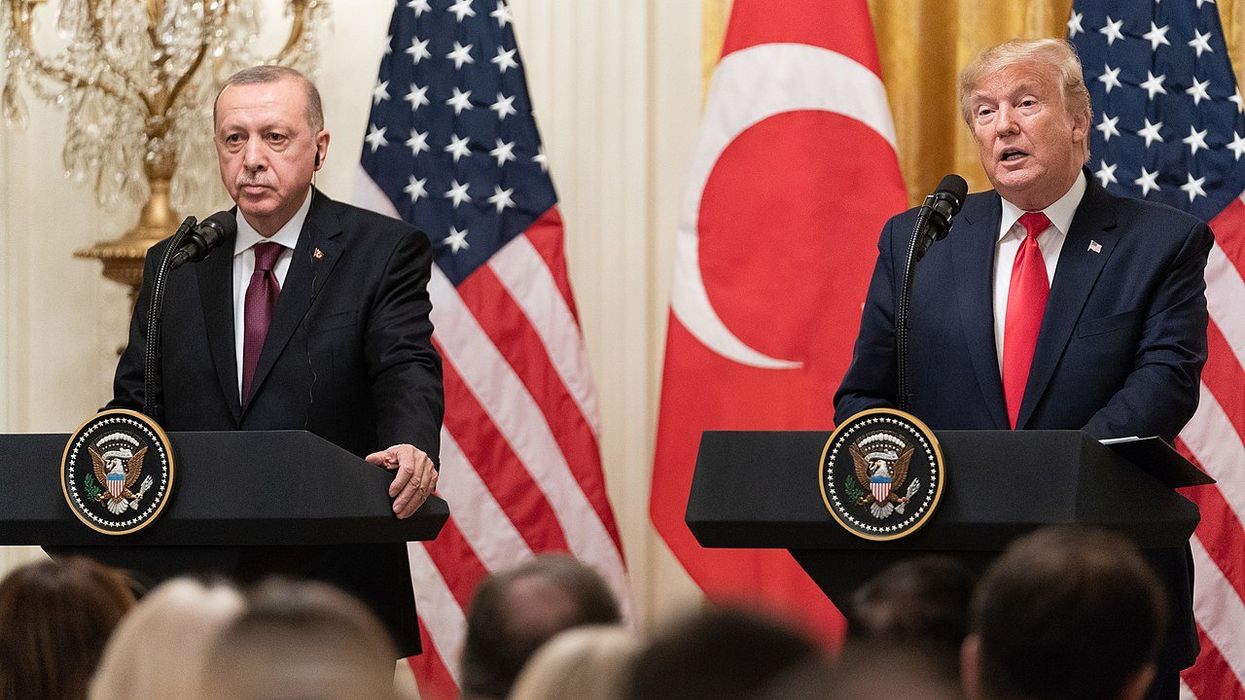President Donald Trump's critics, both left and right, often use the word "unprecedented" to describe his actions. No previous president in U.S. history — not even Richard Nixon — contemplated deporting U.S. citizens to foreign prisons or took aggressive action against law firms for having clients he didn't like.
They typically mean "unprecedented" in the United States, not unprecedented elsewhere.
In an article published by The Atlantic on May 14, Andrew O'Donohue — a political scientist at Harvard University in Cambridge, Massachusetts — warns that Trump is employing a legal strategy used by despots in other countries.
READ MORE: 'Dangerous and disgraceful': Michigan Republican busted for 'racist statements'
"Donald Trump’s attacks on the courts lack recent precedent in the United States," O'Donohue explains, "but they follow a clear pattern seen in backsliding democracies around the world. In many countries, when political leaders challenge the courts, the end result isn't merely a win in a single policy dispute. These attacks have a deeper, more destructive effect: They systematically weaken the courts as a check on the executive's power — opening the door for governments to abuse that power to target opponents and endanger democracy."
The Harvard political science expert continues, "This fight takes place both inside and, importantly, outside the courtroom, in the arena of the public’s opinion. Even though citizens generally agree that governments should obey court orders, several would-be authoritarians — such as those in Turkey, Mexico, and El Salvador — have managed to defy the courts, while keeping the public on their side.
O'Donohue describes the "pattern" he has "studied" in "democratic backsliding globally" as "court-baiting."
"To understand this dynamic, consider a textbook example from Turkey," O'Donohue writes. "When Turkey’s long-serving leader, Recep Tayyip Erdoğan, first rose to power in 2003, he initially faced powerful constraints from the judiciary. Whereas Erdoğan's party was religiously conservative, Turkey's courts were staunchly secular and issued dozens of decisions during Erdoğan’s first term to limit the government's sway over historically secular state institutions. To take down the judiciary, Erdoğan used the court-baiting playbook."
READ MORE: 'Soft spot for despots': How conservative intellectuals set the stage for Trump
O'Donohue continues, "He proposed a constitutional amendment perfectly designed to galvanize public support — and trigger a showdown with the judiciary. In Turkey, the courts had repeatedly upheld a ban that prevented Muslim women from wearing the Islamic headscarf at universities in the name of upholding the constitution’s strict commitment to secularism."
Trump, O'Donohue argues, is using the "court-baiting playbook" in a similar fashion to Erdoğan in Turkey — and the goal is an "erosion of checks and balances."
"The experiences of other democracies offer a warning: Court-baiting starts by expanding executive power on a popular issue," O'Donohue writes, "but it can end with an unconstrained executive who destroys the cherished institutions of a free society."
Andrew O'Donohue's full article for The Atlantic is available at this link (subscription required).


